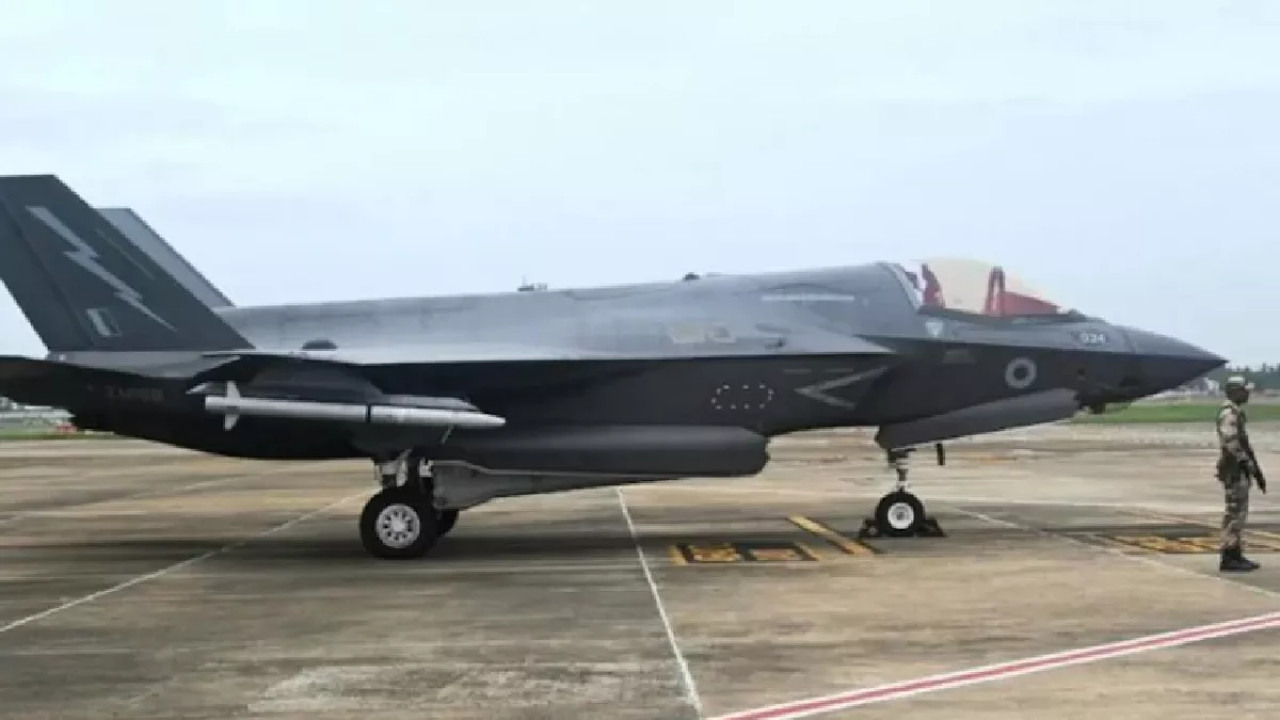
UK F-35B fighter jet makes emergency landing in Japan (Social media)
International News: A Royal Air Force F-35B fighter jet from the United Kingdom had to make an emergency landing in Japan after developing a mechanical problem while in the air. The incident took place on Sunday at Kagoshima Airport, causing delays to some commercial flights at the airport.
This is not the first time a British F-35B has faced trouble recently. Less than two months ago, on 14 June, another F-35B jet encountered a serious technical problem during a long flight from the UK to Australia. That aircraft suffered a hydraulic failure and had to land urgently at Thiruvananthapuram Airport in Kerala, India.
The Kerala incident left the fighter jet grounded for nearly five weeks before it finally received clearance to continue its journey back to the UK.
The F-35B is a fifth-generation stealth fighter, known for its ability to take off and land vertically, making it suitable for aircraft carriers. The aircraft involved in Sunday’s incident is part of the HMS Prince of Wales Carrier Strike Group—one of the UK’s most advanced naval fleets.
This strike group is currently deployed in the Indo-Pacific region as part of the UK’s strategic presence in the area. It has been taking part in various military operations and exercises, including recent joint naval drills with the Indian Navy.
While details of the exact technical issue have not been made public, Japanese authorities confirmed that the pilot requested an emergency landing after detecting a mechanical problem mid-flight. The Kagoshima Airport emergency team was put on alert, and the fighter jet landed safely without any injuries reported.
The airport, however, experienced some disruption as a few passenger flights were delayed until the runway was cleared and normal operations resumed.
The recent incidents involving British F-35B fighter jets highlight the maintenance challenges of operating advanced military aircraft. While the F-35B is equipped with cutting-edge technology, its complex systems require constant inspection and servicing. Any malfunction, no matter how minor, can force pilots to take immediate safety measures, including emergency landings.
Defense experts point out that long-distance deployments, especially in humid and coastal environments, can increase the risk of technical issues. Military planners often have to strike a balance between operational readiness and the maintenance needs of such sophisticated equipment.
Despite the latest incident, the HMS Prince of Wales Carrier Strike Group remains active in the Indo-Pacific. The group’s presence is part of the UK’s broader aim to strengthen security cooperation with regional allies, particularly amid growing geopolitical tensions.
The British Ministry of Defence is expected to carry out a detailed inspection of the aircraft involved in Sunday’s emergency landing before deciding on its next operational assignment.





Copyright © 2026 Top Indian News
